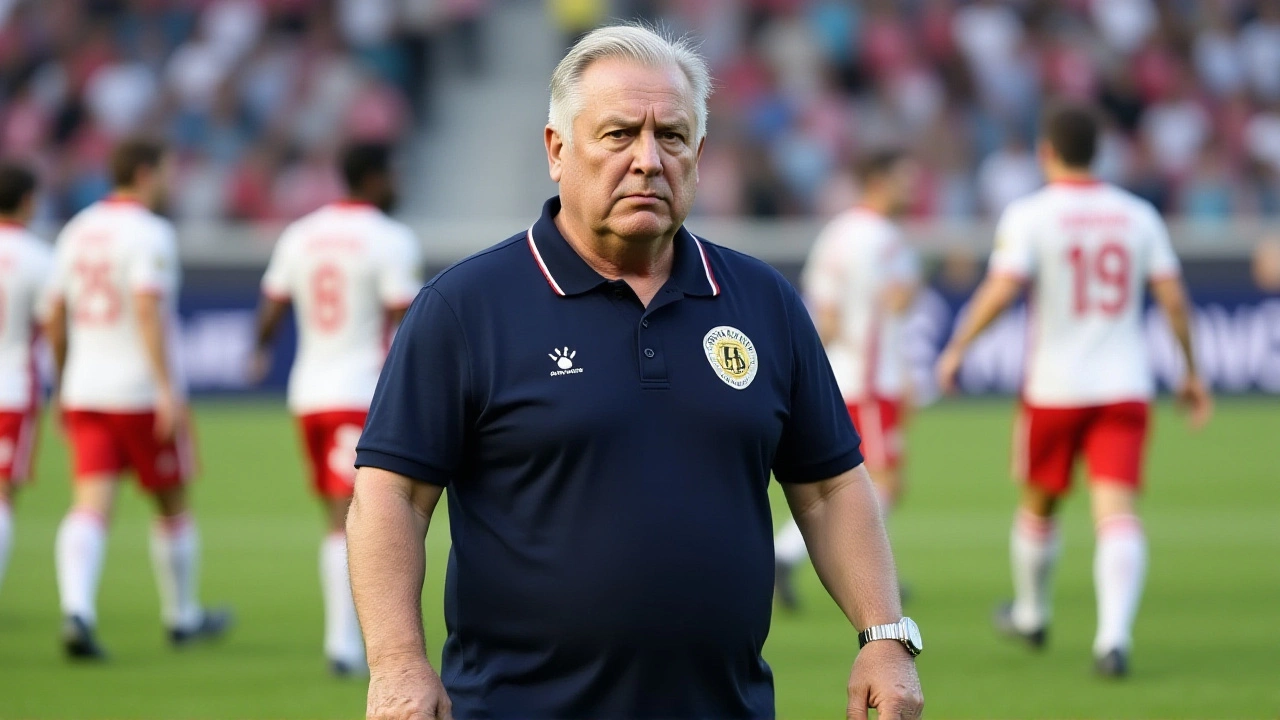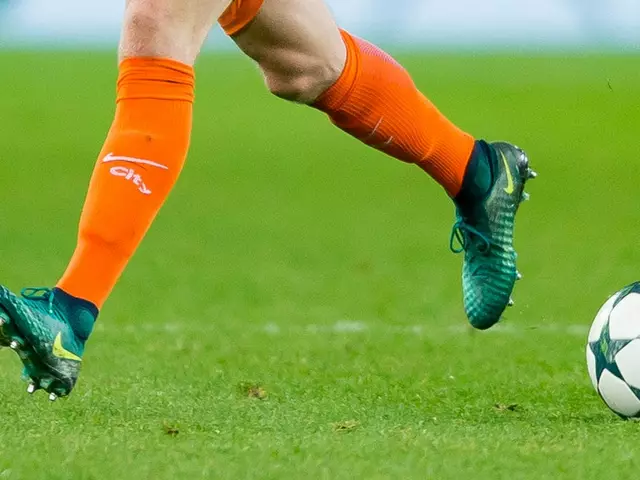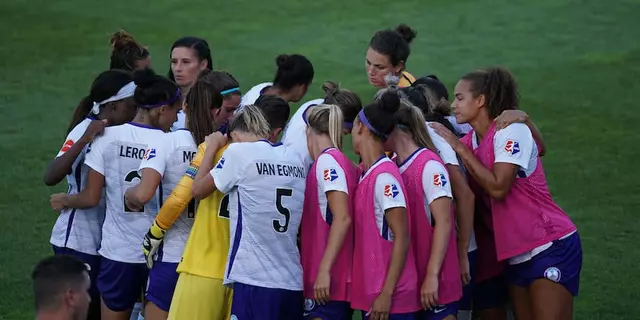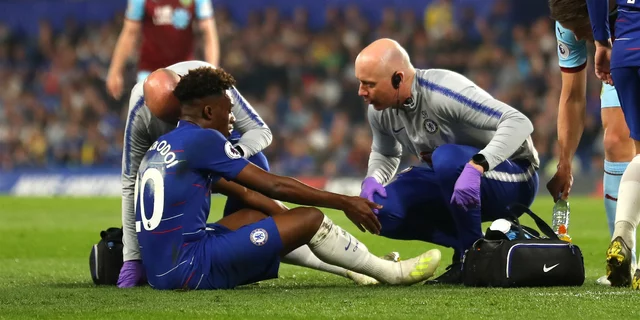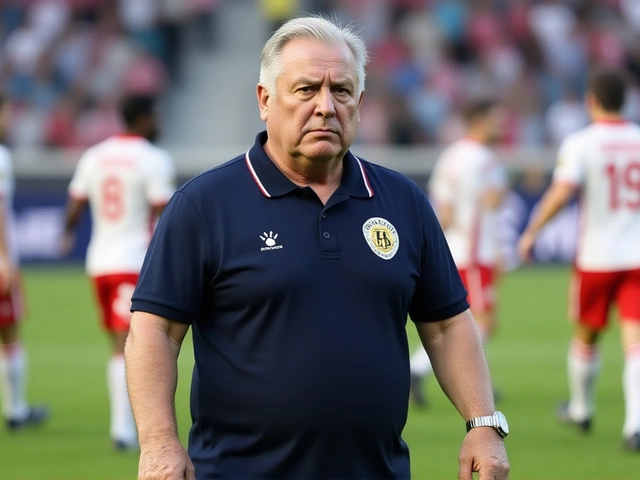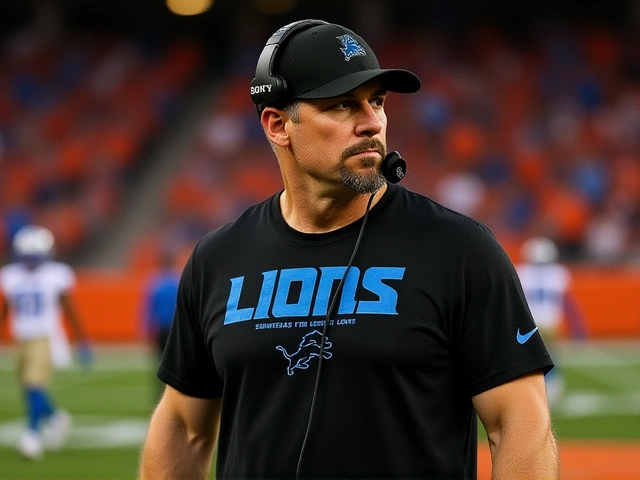Curaçao stuns world with first World Cup qualification under Dick Advocaat, powered by Joshua Brenet’s Livingston move
It shouldn’t have been possible. A Caribbean island with fewer people than many English towns, barely 165,000 residents, beating giants in World Cup qualifying. Yet on November 20, 2025, Curaçao Football Union did exactly that — securing its first-ever FIFA World Cup qualification for the 2026 FIFA World Cup finals. And it happened not by luck, but by the quiet, relentless precision of Dick Advocaat, the 77-year-old Dutch tactician who’s managed nine national teams before this one.
From Doubt to Destiny: Advocaat’s Quiet Revolution
When Dick Advocaat accepted the Curaçao job in early 2024, few took it seriously. He’d just stepped away from Iraq’s national team. His résumé? Rangers, the Netherlands, Russia, South Korea — elite names. Why Curaçao? The answer, insiders say, was simple: he saw potential where others saw obstacles. "He didn’t come for the glamour," said Kenji Gorré, communications director for the Curaçao Football Union. "He came because he believed we could be more than a footnote." Advocaat arrived with his longtime assistant Cor Pot, but kept Dean Gorré — the former Huddersfield and Barnsley midfielder — as a bridge to local culture. Gorré had kept the team afloat during interim duty. Advocaat didn’t sweep him aside. He elevated him. "It wasn’t about replacing the past," Kenji Gorré added. "It was about building on it." The first move? Discipline. No more chaotic camps. No more guessing who’d show up. Advocaat instituted mandatory pre-season training in the Netherlands, where most of Curaçao’s players were based. He demanded fitness logs, video reviews, even meal plans. "He treated us like Belgium," one player told The Irish Times. "Not like a team that barely had a training ground."The Livingston Connection: Joshua Brenet and the Diaspora Strategy
The breakthrough came not from a single goal, but from a transfer. In September 2025, Josua Brenet, a 28-year-old full-back who once played for PSV Eindhoven, signed with Livingston FC in Scotland’s Championship. It wasn’t just a club move — it was a strategic pivot. Brenet, born in the Netherlands to Curaçaoan parents, had been overlooked by the Dutch national setup. Advocaat saw him. Called him. Said: "You’re our left back for life." Brenet accepted. He became the linchpin of a defense that conceded just two goals in six qualifying matches — including a 0-0 draw against Panama in Kingston, where Advocaat was absent due to a family emergency. His move to Livingston FC — a club founded in 1897, playing in the 9,512-seat Tony Macaroni Arena — was no accident. It gave Brenet top-flight minutes in a competitive league, keeping him sharp for international duty. "Livingston gave him the platform," said one scout familiar with the deal. "Advocaat didn’t just recruit talent. He engineered careers."The European Pipeline: Chong, Hansen, Obispo, and the Unlikely Squad
Curaçao’s squad reads like a who’s who of European lower-tier football — but with elite pedigree. Tahith Chong, once a Manchester United academy star, now plays for Sheffield United after his August 2025 move from Luton Town. Sontje Hansen, a 22-year-old striker who came through Ajax’s famed youth system, is thriving at Middlesbrough. Armando Obispo, who started at PSV and played Champions League football, anchors the backline. Even Ar'jany Martha, now at Rotherham United, chipped in with a crucial goal in the final qualifier. And then there’s Jürgen Locadia. Once a £15 million signing for Brighton & Hove Albion, he spent the last year unemployed after leaving Spain’s fourth-tier CD Intercity. Advocaat didn’t write him off. He called. Said: "We need your experience. You’ve seen the pressure. Come back." Locadia started in three qualifiers. Didn’t score. But he held up play. Made space. Was, by all accounts, the team’s emotional glue.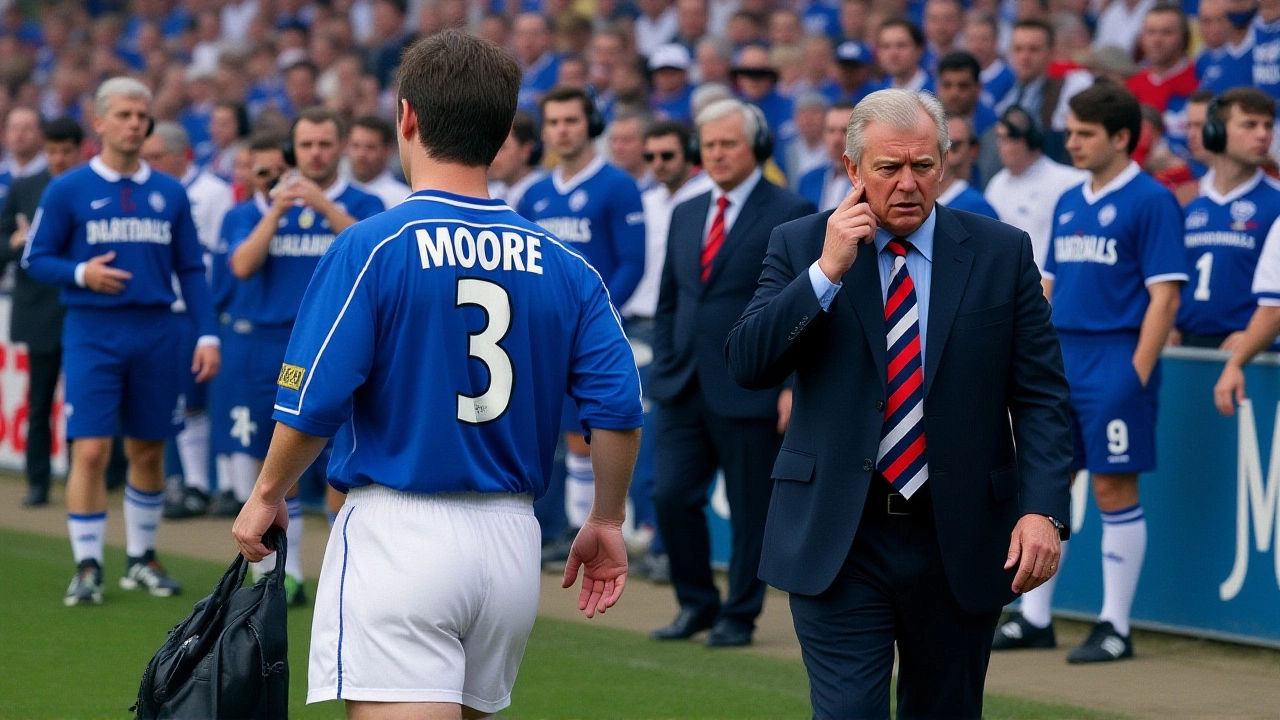
Why This Matters: A 165,000-Person Miracle
Curaçao isn’t just small. It’s statistically insignificant in football terms. Its population is smaller than Livingston, Scotland’s entire town. Yet it qualified ahead of Jamaica, Haiti, and even Trinidad and Tobago — nations with far larger fanbases and budgets. The Curaçao Football Union, based in Willemstad, didn’t have a high-performance center until 2023. Now, they’re preparing for the World Cup finals. "It’s not about money," said Dr. Marlon De Jong, a sports sociologist at the University of Utrecht. "It’s about identity. Advocaat didn’t just coach a team. He gave a people permission to believe they belong on the biggest stage." The irony? Curaçao is part of the Kingdom of the Netherlands — yet the Dutch FA never seriously pursued its talent. Advocaat, a Dutchman, did. He didn’t see a colony. He saw a nation with players who’d been ignored.What’s Next? The Road to North America
Curaçao will be in Group A of the 2026 World Cup, alongside the United States, Canada, and a qualifier from Asia or Oceania. They won’t be favorites. But they won’t be pushovers either. Advocaat has already hinted at a new training base in Florida, where the diaspora is largest. The squad will train together for 10 days straight before the tournament — something they’ve never done before. Livingston FC, meanwhile, is reportedly negotiating a sponsorship deal with the Curaçao Football Union. Brenet’s name is already trending on social media in the Caribbean. "He’s our captain now," said a 12-year-old fan in Willemstad, wearing a Livingston jersey. "He’s our hero."
Background: The Long Road to History
Curaçao’s first World Cup attempt was in 1978. They’ve tried 11 times since. Never made it past the second round. Their best result? A 1-1 draw with Jamaica in 2018 qualifiers. This time, they didn’t just draw. They won. They held their nerve. They didn’t collapse under pressure — because Advocaat made sure they wouldn’t. The team’s previous coach, Dean Gorré, had no budget for analytics. Advocaat brought in a data analyst from Belgium. The team’s last training camp had one ball. Now, they have 20. The locker room had a broken fan. Now, it has climate control. This wasn’t a miracle. It was management. Precision. Belief.Frequently Asked Questions
How did Dick Advocaat manage to turn Curaçao into World Cup qualifiers?
Advocaat didn’t rely on flashy tactics — he built structure. He enforced discipline, standardized training, and used his decades of international experience to identify overlooked diaspora players. By coordinating with European clubs like Livingston and Middlesbrough, he ensured his players stayed match-fit. His focus on defensive solidity — conceding just two goals in six qualifiers — was the foundation of their success.
Why is Joshua Brenet’s move to Livingston FC so significant?
Brenet’s transfer to Livingston FC in September 2025 gave him consistent competitive minutes in a physically demanding league. Advocaat specifically targeted players in European second-tier leagues because they offered high-intensity play without the media pressure of top-flight clubs. Brenet’s reliability at left-back became critical in tight qualifiers, and his move symbolized how Curaçao’s success was built on smart, practical recruitment.
Who are the key players in Curaçao’s World Cup squad?
The core includes Josua Brenet (Livingston), Sontje Hansen (Middlesbrough), Tahith Chong (Sheffield United), Ar'jany Martha (Rotherham), and veteran Jürgen Locadia. These players, all born to Curaçaoan parents or raised in the diaspora, were pulled from European clubs where they were under the radar — making them the perfect blend of talent and motivation.
What makes Curaçao’s qualification historically unique?
Curaçao is the smallest nation — by population — ever to qualify for a men’s World Cup. With just 165,000 residents, they surpassed nations like Jamaica and Haiti. Their qualification also marks the first time a Caribbean team has advanced without relying on home-field advantage or a single star player. Instead, they built a collective system, proving that organization can overcome scale.
How did the Curaçao Football Union support this breakthrough?
The Curaçao Football Union in Willemstad shifted from reactive to proactive management. They hired a full-time logistics coordinator, partnered with Dutch clubs for player development, and created a centralized database of all Curaçaoan players in Europe. They also secured funding from the Caribbean Football Union to fund training camps — something previously impossible.
What’s the long-term impact of this achievement on Caribbean football?
Curaçao’s success has already inspired Haiti, Suriname, and the British Virgin Islands to overhaul their national programs. FIFA has signaled interest in creating a new development fund for small Caribbean nations. More importantly, it’s changed perception: youth academies in Willemstad are now full. Parents are telling kids, "You don’t need to move to Europe to be great — you just need to be seen."
